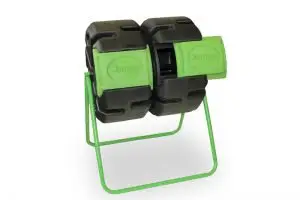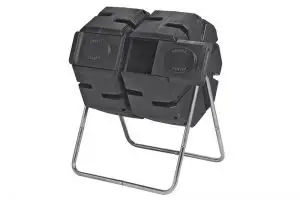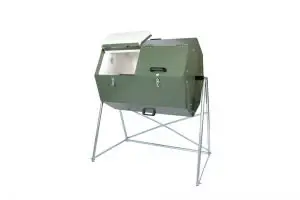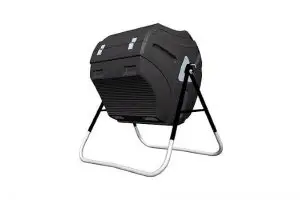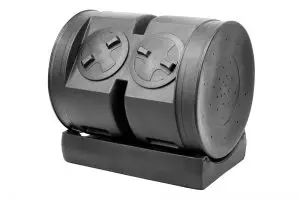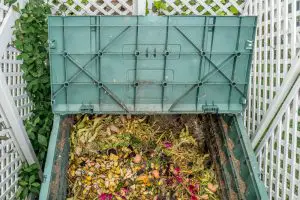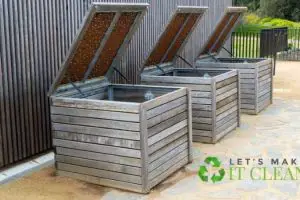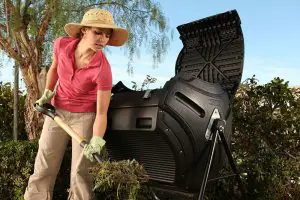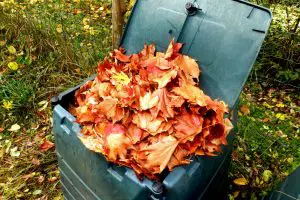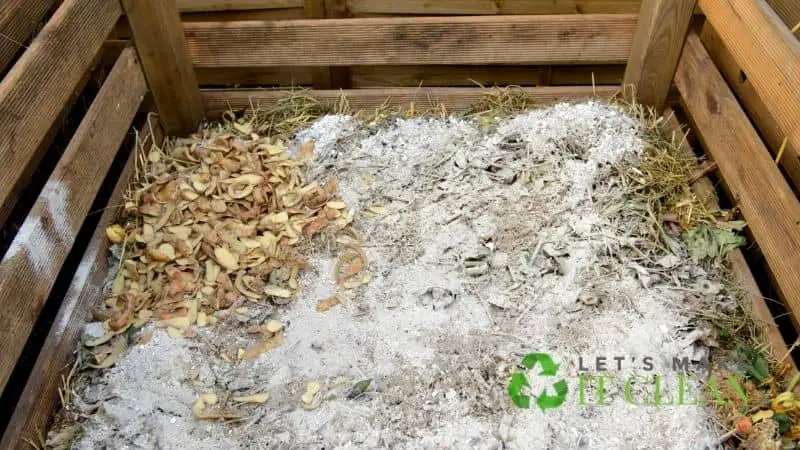What are the signs that you should look out for to know that your compost is finished? It’s essential that you tell the signs to know if it is ready to use in your garden.
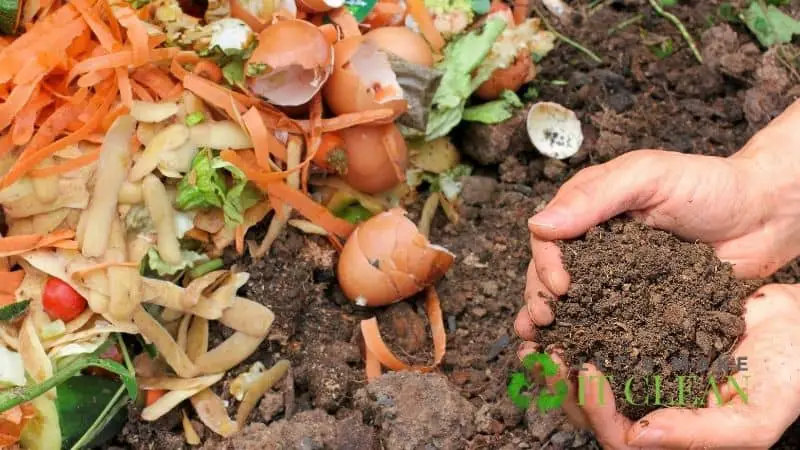
If the compost is not ready for use, it means it is still emitting heat, which can kill the plants if you add it to the soil.
Quick Navigation
Composting is an excellent way of dealing with kitchen waste, food scraps, grass clippings, and other organic matter in your compound.
If the organic matter ends up in the landfill, it could result in harmful effects such as methane gas, which is harmful to the environment.
While composting is a worthy undertaking, it is also daunting. You have to keep an eye on the compost bin (get a tumbler) or compost pile to ensure it’s not attracting any pests. You have to turn the compost often to ensure it’s well aerated.
You have to ensure you have a working balance between carbon and nitrogen ratio for healthy compost.
After you have done everything that needs to be done, what signs do you look out for to know your compost should be taken to the garden?
How Do You Know That Your Compost Is Ready?
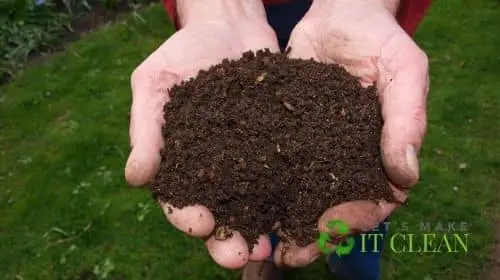
Whether you are a beginner or experienced composter, it’s not unlikely to wonder:
- “Am I composting properly?”
- “Are my composting efforts bearing any fruits?”
- “How do I know when the compost is finished and ready for the garden?”
If you are asking yourself such questions, you are not alone.
So, when is the compost finished?
The compost is ready when it has gone through all the stages of composting and stops producing heat.
The main phases of composting include the mesophilic phase, thermophilic, cooling phase, and curing phase.
When the compost has successfully gone through all the phases, it should have a deep earthly smell, which is not like its original organic matter.
The finished compost also doesn’t look like the original one. All the organic matter, including food waste, garden plans, dry leaves, and other greens and browns, decompose completely.
You should not recognize any of the original ingredients in the complete compost. If you see big and recognizable pieces of the original materials, the compost is not complete.
However, some big materials such as wood chips, corn cobs, etc., take longer to decompose. When building your compost pile, it’s vital to keep such materials at the bottom to allow for aeration from the bottom of the compost.
What Happens if You Left the Compost for Too Long?
Compost contains bacteria and microorganisms that require food, moisture, and air to survive.
Cold composting is when you are just throwing your kitchen waste and other organic materials in the compost. The method can take up to 2 years for the compost to be complete.
On the other hand, you have hot composting that will take 6 months to complete. Hot composting requires you have high nitrogen-rich materials such as garden plants. Also, you should turn the compost often for proper aeration (TIP: buy a compost turner).
Turning the compost also ensures you get the materials from the top cold place to the center of the pile where the temperature is up. This speeds up the decomposition process.
So, after the composting process is over and you harvest it, what happens if you leave the compost for too long?
If you leave the finished compost in a compost bin, pile, or bag for too long, it will still be good for use in your garden after years.
You should make sure to store it in a dry place, cover it, and maintain the moisture level.
But when it stays for an extended period, the compost will start to break down. The nutrients also start to leach, and the compost may start to rot.
Lastly, the compost can get contaminated by fungus, making it harmful for your garden soil and plants.
If the compost in the compost pile or compost bin has just finished, you can store it to grow plants in the next season.
How long the compost will last will also depend on the climate of your region. The compost will last longer in a dry and cool place than in a hot and humid region.
How to Use Finished Compost
Some of the most popular uses of finished compost include:
Homemade Potting Soil
Finished compost is a perfect addition for a mixed DIY potting soil. Pass the compost through the half to a 1-inch soil screen to remove the large debris in the compost.
You should then mix the potting soil in 1 part compost, 1 part topsoil, and 1 part vermiculite.
Use as Mulch
Using finished compost as mulch is an excellent way of boosting your harvest.
The finished compost prevents weeds from sprouting, and it also prevents evaporation.
Brew Compost Tea
Making compost tea is an excellent idea if you want to get the mature compost directly to the plant’s roots.
When the compost is ready, steep it in a liquid emulsion to concentrate the nutrients and make it easier for the composts to absorb.
Top Dress Garden Beds
When the compost is ready to use, sprinkle it on the soil surface. The worms (use worms for speeding up the process) will pull the organic matter into the soil.
Dressing the beds using mature compost enhances water absorption.
Grow Tomatoes, Cucumbers, Squash, and Melons
You can use the finished compost to grow heavy feeders such as melons, squash, cucumbers, etc. The plants require a lot of nitrogen to produce.
If you want to use the compost, add it to the planting holes while planting the seedlings. If you want to get the best results, top-dress a few times during the growth.
What Are the Phases of Composting in the Compost Pile?
In the composting process, the aerobic microorganisms break down the organic matter into humus, which is the stable organic end product. The process also leads to the production of water, heat, and carbon dioxide.
Under optimal conditions, composting takes place in three phases. These include the mesophilic phase, which is a moderate temperature phase and lasts for a few days. This is followed by a thermophilic phase, a high-temperature phase that can last up to several months.
Curing is the final phase in decomposition, and it takes the longest. It can take between one month to a year for the curing process to end. The curing phase is vital as it helps to change the temperature and smell of the compost.
Properly cures compost smells earthy like garden soil, and it no longer emits heat.
The fact that it doesn’t emit any smells is essential as you add it to the garden as it means it cannot kill the neighboring plants.
Conclusion
If you want to know if your compost is ready or not, there are certain signs that you should look out for.
For instance, the finished compost should be crumbly in texture, and you shouldn’t recognize any of the organic matter you used in the compost.
The finished compost is also dark in color, like topsoil or dirt. Finally, the complete compost should have significantly reduced in size. It should be at least half of the original size.

